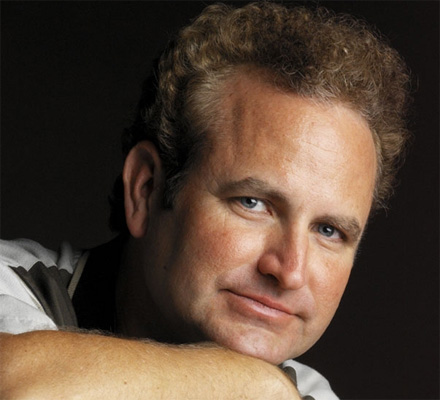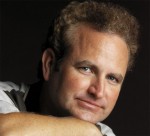
 This year, I mean it. No more abandoning resolutions to learn the fiddle or write a song every week. No more good intentions turned into shovel-ready projects to hell. No more orgy of self-loathing with two guys named Ben & Jerry. No more bacchanal of broken promises. This year, I mean it—no more New Year’s resolutions.
This year, I mean it. No more abandoning resolutions to learn the fiddle or write a song every week. No more good intentions turned into shovel-ready projects to hell. No more orgy of self-loathing with two guys named Ben & Jerry. No more bacchanal of broken promises. This year, I mean it—no more New Year’s resolutions.
Except one. Okay, two. But that’s it.
After all, there’s nothing special about January as a starting point. The Romans celebrated the New Year in March (which is why Sept-ember though Dec-ember were the seventh through tenth months) until Julius Caesar had a few extra cases of champagne on hand and decided to throw a party that became known as Julius’s Rockin’ New Year’s Eve. Dick Clark took over in 44 BC.
Caesar also named a month after himself—July. See what you can do when you don’t have to deal with Congress?
Until 1752, the English celebrated New Years on March 25. And baseball fans still celebrate New Years on the day pitchers and catchers report for Spring Training—the same day each year that my San Diego Padres are mathematically eliminated from the playoffs.
I’m just saying that January is an arbitrary time for beginnings, but here we are. As soon as the ball drops in Times Square, the old guy with the scythe and hourglass turns into the New Year’s baby and all things are possible.
So, this year I wrote down the top 10 things I want to change in my life and picked the bottom two, reasoning that I’ll never come close to accomplishing the first eight. Let us skip over, then: learn the fiddle; finish reading Patrick O’Brian’s Aubrey-Maturin series; lose 25 pounds (okay, 50); write a song a week; learn a song a week; memorize the St. Crispen’s Day speech from Henry V; wake up at 5 am every day; and find an F5 Lloyd Loar at my neighbor’s yard sale for $5.
Let’s jump to ninth and tenth on the list—to things I think I can actually do. I think.
Number 9: use more paper. I’ve gone too far into the dark side of the digital world. I miss the smell of newsprint in the morning. And I miss legal pads, day planners, comic books, notebooks, blue books, stationery, cardboard LP covers, and most of all I miss those solar-powered, random-access, narrative delivery systems—books.
I’m not giving up my iPad. I like being able to read virtually anything, virtually. But I also like the way real books sit around my house unread, taunting me with airs of superiority like Russian lap dogs. I just like having them there. I can pick them up on a whim and occasionally even read them.
Number 10 (and the real point of this piece, finally): every day I want to say the Gaelic phrase, ciúnas gan uaigneas, pronounced KEW-nuss gon OO-ig-nuss. The phrase means quietness without loneliness, or maybe in bluegrass: lonesome but not alone.
I came across it in a book (sorry, an ebook) called The Creative Habit by the choreographer Twyla Tharp, published in 2003. It’s a quirky self-help book for artists of any kind—dancers, writers, painters, songwriters, or bluegrass musicians—full of stories and ideas for getting stuff done.
It’s a good book for when your creative metabolism has slowed to the point where the time between projects is measured in Cretaceous epochs. One thing jumped out at me. She suggests being quiet. That is, finding time to be alone enough and quiet enough to let your subconscious start to bubble up ideas—words, melodies, colors, phrases, whatever your creative language is.
Simple. Yet, in this world where we’re expected to tweet, blog, Facebook, email, and message every day in order to stay in touch with friends or grow a fan- or client-base, it can be incredibly challenging to find the time to just be quiet.
Tharp emphasizes that it’s not meditation. It’s not trying to reduce our thoughts to nothing. Rather, it’s like going fishing. We have a goal—to catch a fish, or a song or a melody or a story—but we need to sit quietly in that boat a while. We need to listen to the wind on the water and wait.
So, saying ciúnas gan uaigneas is a reminder that in order to create anything, we need to silence the daily babble. I could just say to myself, “Shut the #%* up and get to work,” but I think the Gaelic is better at signaling that it’s time to shut down the outside world for a while—even if it’s just for five minutes to start with.
Quietness without loneliness. Maybe the bluegrass translation works better for musicians—lonesome, but not alone. We make noise, but we still need quietness, the spaces between notes, the rests, the pauses. Even when we are practicing a forward roll, it can be a way of shutting out the world and letting the creative thoughts come to the surface—to take the bait.
It’s hard to shut out the world these days; almost impossible. And yet, if you’re serious about creating anything or learning an instrument, then you need to approach it first with quietness. Alone.
For some, being alone is the hardest part. That’s why the second part of the phrase is as important as the first: without loneliness. The idea is not that if you’re working on your art, your craft, then you won’t feel alone. It’s that you use the loneliness, the lonesomeness, to make something out of nothing.
And it’s also a reminder that you eventually have to re-engage with the world. And, of course, the world does always intrude.
So, that’s my non-New Year’s resolution. Who knows if it will last more than a few days. I’m sure I’ll tweet about it.




